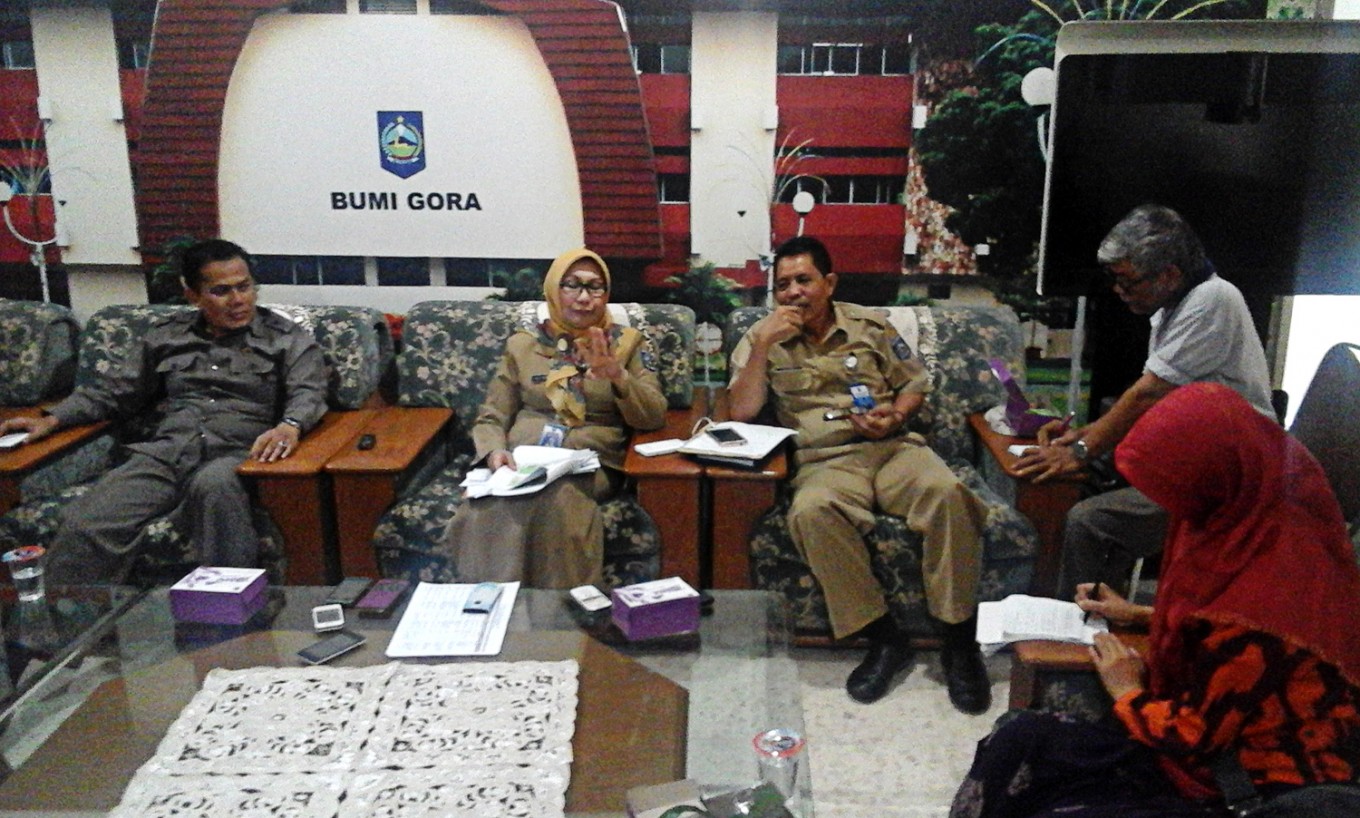Shackling remains a threat to the mentally ill in NTB
Change Size
 Against shackling -- Mutiara Sukma Mental Health Hospital director Elly Rosila Wijaya (center) has said shackling remains a threat to people with severe mental health problems. (JP/Panca Nugraha)
Against shackling -- Mutiara Sukma Mental Health Hospital director Elly Rosila Wijaya (center) has said shackling remains a threat to people with severe mental health problems. (JP/Panca Nugraha)
D
espite the national goal of a ‘shackle-free’ Indonesia by 2019, inhumane practices of shackling continue to threaten people with serious mental illnesses in West Nusa Tenggara (NTB).
Data from Mutiara Sukma Mental Health Hospital (RSJ) belonging to the NTB administration has revealed that in 2013, more than 9,000 people in the province suffered severe mental health problems, many of whom were later shackled.
“Our projection is that in 2013 around 0.21 percent of the total population in NTB, or more than 9,000 people, had severe mental health problems. Of the total, 1,409 had been shackled by their families for various reasons, but this was mainly because they lacked an understanding [of mental health problems],” RSJ Mutiara Sukma director Elly Rosila Wijaya said in Mataram on Monday.
Out of the 1,409 shackled mentally ill people living in 10 regencies and municipalities across NTB, the psychiatric hospital was able to return 568 patients back to their families, she said. The whereabouts of the remaining patients either had not been located or had not been reported by their families.
Citing hospital data, Elly said 160 or around 20 percent of the 568 patients released from shackling in the last three years had recovered, in which they lived a productive life in and around society.
She further explained most of the shackling cases in NTB occurred because families of the mentally ill patients were worried that they would put other people in danger. Prolonged social stigma against people with mental health disorders only aggravated the problems, and with families considering it “shameful”, they opted to hide their loved ones instead of seeking treatment. Some others believed mental health problems could not be dealt with.
“In fact mental health problems, including the severe ones, can be managed. Shackling violates the rights of people with mental health problems to get proper treatment,” said Elly.
RSJ Mutiara Sukma and the NTB administration, she said, were striving to find more cases of shackling. They provided information on the danger of shackling to locals through community health centers (Puskesmas) and set up a site and SMS service where people could report shackling cases.
"We hope all people will file reports with us if they find shackling cases so that we can immediately treat the patients," said Elly.
According to hospital data, more than 450,000 or 12 percent of people in the province have mild mental health issues. The psychiatric problem can become severe if left untreated. The mental health problems in NTB have tended to increase each year.
RSJ Mutiara Sukma data show 36,760 people with mental health problems received out-patient services while 1,296 people got in-patient treatment in 2015, an increase from the 21,927 people with out-patient treatment, with 1,270 receiving in-patient treatment, in 2014.
Elly said last year’s figure might be surpassed. “This is because as of August this year, we have recorded 29,000 people with out-patient treatment and 749 people that have received in-patient treatment.” (ebf)









